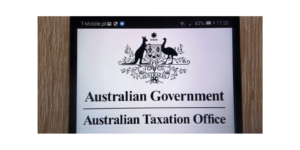ATO Lets Down Hardworking Aussies

A report from the National Audit Office (NAO) has revealed that the Australian Taxation Office (AT)) has failed to collect billions in unpaid superannuation at significant cost to workers, while their bosses break the law and big corporates pay little or nothing in tax.
Failing Australians saving for retirement
Instead of proactively investigating and pursuing employers who fail to pay superannuation guarantees to employees (and despite several public promises to get tough on this) the ATO is instead using a “nudge” approach.
The result is that less than 15 percent of unpaid superannuation is collected by the ATO each year.
The report by the ANAO found the ATO was only ‘partially effective’ in its efforts to recoup lost superannuation and encourage employers to pay super – calculating that the ATO was owed $2.9 billion in tax charged to employers that failed to pay superannuation.
The superannuation industry itself estimates that the shortfall could actually be as high as $5 billion per year.
Most employers do the right thing and pay employee super contributions without any intervention by the ATO – it is against the law for businesses not to.
Businesses breaking the law
However, rogue employers who ignore paying super entitlements cost Australians dearly and they should be dealt with harshly.
Of course, businesses have been under pressure in the past couple of years, but so too have workers – many lost jobs, or had hours cut during the Covid-19 pandemic, others had employment terminated when they refused to comply with vaccination mandates.
There is currently a superannuation amnesty in place, which is designed to take the pressure off business, and encourage businesses to pay outstanding balances on compulsory superannuation.
But in many cases when an employee isn’t being paid superannuation it is usually the employee who takes the matter further with the ATO which puts the burden on them to prove their entitlement and make a formal complaint which doesn’t seem fair given the ATO’s significant budgets and resources which mean that it could be pursuing non-compliant businesses proactively.
Focused on penalising and prosecuting the poorer
The ATO is very good at chasing annual tax and penalising ordinary Australians when they do the ‘wrong thing’,but has a history of turning a blind eye to corporations.
Indeed, there is a long list of corporations which get away with paying little to no tax every year, and many of the companies make the list time and time again.
The ATO has adopted the recommendations made by the ANAO and says that when the amnesty ends, it will get tough and hand out heavy penalties.
In Australia, the superannuation scheme is compulsory. But it is also designed so that all workers have savings when it comes to retirement.
There are two sets of legislation which govern superannuation – the first is the Superannuation Industry (Supervision) Act 1993 which outlines how superannuation funds can operate. The other is the Financial Services Reform Act 2001.
By law, employers who do not pay the correct super can be fined up to $10,500 and/or face 12 months imprisonment.
Only time will tell whether the ATO will shift its focus from penalising and prosecuting those on the lower end of the socioeconomic scale towards ensuring those who are at the higher end fulfil their legal obligations.







